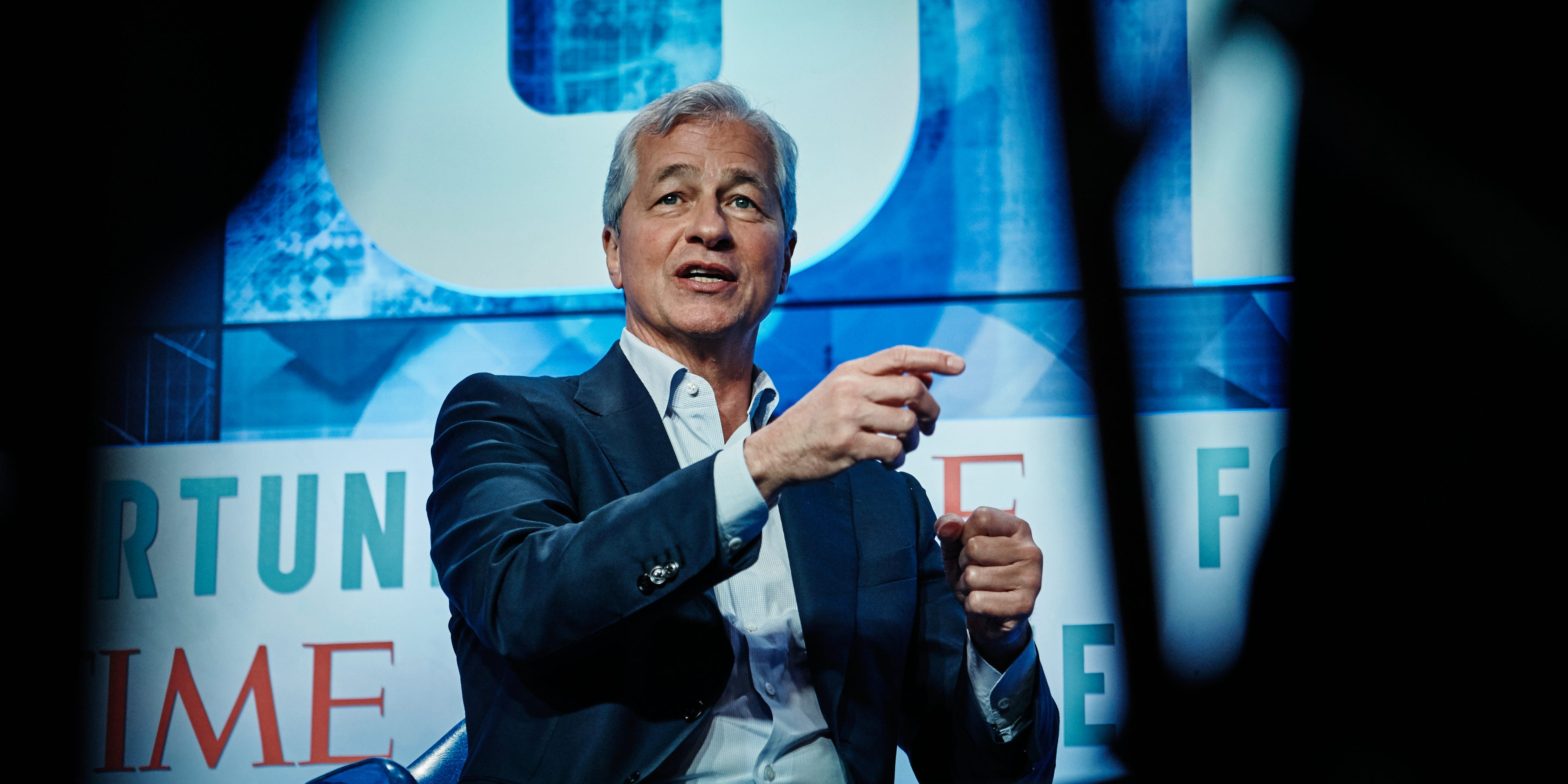The stock market could fall another 20% as a recession is likely to hit the US economy over the next six to nine months, according to Jamie Dimon.He said higher inflation, interest rates, and war uncertainty are all contributing to volatile markets.”The far more serious thing is this war,” Dimon told CNBC on Monday. Loading Something is loading.
Thanks for signing up!
Access your favorite topics in a personalized feed while you’re on the go.
The stock market could get a lot more painful as a recession is likely to hit the US economy over the next six to nine months, JPMorgan CEO Jamie Dimon told CNBC on Monday.
He said he sees the stock market falling another “easy 20%” from current levels, which would put the S&P 500 right around 2,900.
“It really depends” if the economy sees a soft or hard landing, but “it could be another easy 20% and I think the next 20% will be much more painful than the first,” Dimon said. The S&P 500 has fallen 25% year-to-date as investors grapple with elevated inflation and fast rising interest rates.
But as many bullish investors would point out, US consumers and most companies are in great shape from a balance sheet perspective, so that could be sending mixed messages to investors given the plunging stock and bond markets.
“Currently right now, the US economy is actually still doing well. Consumers have money, they’re spending 10% more than last year, their balance sheets are in great shape. Yes, debts gone up a little bit, but not near pre-COVID levels. Therefore, even if we go into a recession, they’re going to be in much better shape than 2008 and 2009. Companies are in good shape, credit is very good,” Dimon said.
But you can’t talk about the economy without talking about the future, “and this is serious stuff,” he added.
Specifically, Dimon is concerned about elevated inflation, fast-rising interest rates, and quantitative tightening, which represents the Fed’s reduction of its $9 trillion balance sheet. But most importantly, it’s Russia’s war against Ukraine that is most unsettling to markets and poses a great risk.
“It’s the war. And these are very, very serious things, which I think are likely to put the US in some kind of recession six to nine months from now,” Dimon said.
There are early signs of distress building in markets, and while they’ve been orderly in recent months, they can quickly grow disorderly.
“This is really typical. Markets go down… The IPO market closes first, that’s kind of happened. High yield closes second, and structured credit. That’s kind of happened for the most part. And then it starts to affect other credit. You saw with the gilt markets here, you see the lack of liquidity in a lot of markets,” Dimon said.
The ultimate panic and financial cracks to the system are likely to be found in credit markets, according to the bank CEO.
“It might be ETFs, it might be a country, it might be something we don’t suspect… I would be very cautious. If you need money, go raise it,” Dimon said.
While he did leave room for the possibility of a soft landing if the Fed makes the right decisions and consumers remain strong, Dimon said, “the one guarantee is you’re going to have volatile markets.”
